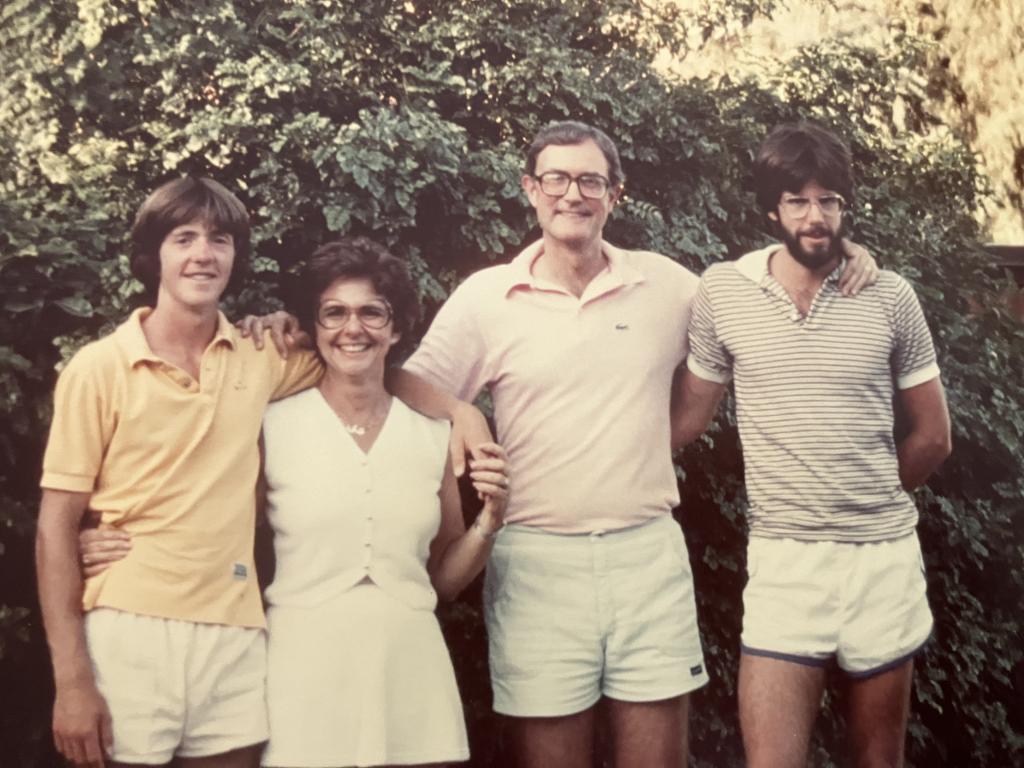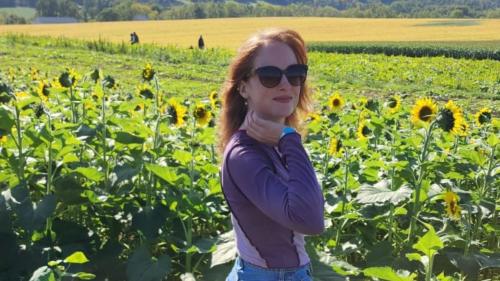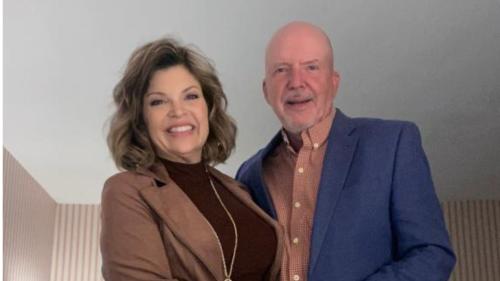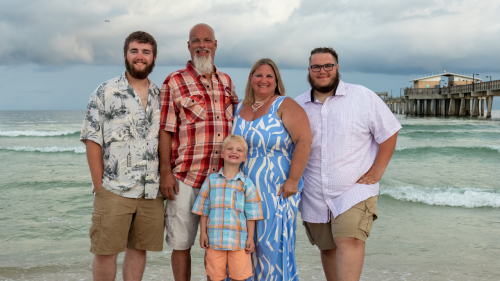

A major force in the formation and development of the Immune Deficiency Foundation (IDF), Bob LeBien served the organization first as vice president and then as vice-chairman of the Board of Trustees for more than three decades. His wife, Sara LeBien, also contributed her time to IDF and authored an illustrated children’s book, “Our Immune System.” It has been translated into several languages and distributed globally.
Bob and Sara LeBien’s son Mike was diagnosed with a primary immunodeficiency (PI), and the couple worked tirelessly to support the PI community.
Written in his own words, this is the story of Bob LeBien’s involvement with IDF, and his subsequent efforts to found and serve the International Patient Organisation for Primary Immunodeficiencies (IPOPI).
__________________________________________________________________________________________________
In 1982, we received a fundraising solicitation from the fledgling IDF. With little knowledge of what they were all about, I sent a reasonably large check based on their intent. Our son, Mike, suffered from common variable immunodeficiency (CVID), and this motivated our donation.
After about three months, I had received no indication they had received it, and it hadn’t been cashed. Somewhat annoyed, I felt they were either incompetent or didn’t need the money. I was advised to call Marcia Boyle, IDF founder and parent to a child with PI, and complain. This I did, although I didn’t know her.
I wasted no time in telling her this was no way to run an organization and that they needed to get their act together. Her response was short and to the point, “Will you be on our board?” I was so shocked that I mumbled, “Yes.” Thus began my more than three decades of association with IDF.
Several months later, I visited Marcia for the first time in her home. As I sat at her kitchen table, Marcia baked bread, made dinner, washed dishes, and talked about how we might create a national patient organization, all at the same time.
My takeaway from this weekend-long meeting was that Marcia was a smart, competent person with a clear vision, but not sure how to make it happen.
As I flew back to Los Angeles, I tried to sum up the challenge. The objective was to create a national patient organization to address issues regarding a disease that no one had ever heard of or understood. This was to be accomplished by patient and caregiver volunteers who had no experience and worked full-time jobs, and supported by an organization that had no offices and very little money.
Since there was no example for us to follow, we had to create our own way. This made our task much more challenging and decisions more vulnerable. We spent countless hours trying to identify and solve the most basic problems.
How could we make our patients aware of our existence? How could we convince the medical community that we were a viable, serious organization with high standards and integrity that warranted their endorsement and support? How could we convince industry that we were worthy of their financial support?
Though we had chapters across the U.S., it became clear that we had to establish a physical presence that was the center for IDF administration and leadership. This resulted in our first office with a part-time, volunteer secretary. I remember how proud we were of this modest achievement. IDF had finally moved out of Marcia’s kitchen. It was a big deal.
Another major problem was the turnover of volunteers. In the early years, the number of active volunteers could be counted on two hands. It was devastating when those who we desperately needed had to leave because of illness, job and time demands, or other personal reasons. The result always set us back because the volunteer pool was so small. This was a serious problem and slowed the progress of the foundation.
These are just a few of the circumstances we faced and problems we had to address during the early formative years. But over time, we all became wiser and more experienced so that we were able to ultimately achieve Marcia’s vision, one that we all shared—an organization that supported and advocated for the PI community.
The IDF connection led to my involvement with IPOPI. The genesis for IPOPI began in 1988 when I met with Dr. Helen Chapel in the cocktail lounge of a Hyde Park hotel. Helen was the chief consulting immunologist at the Radcliffe Medical Center in Oxford, England.
During our conversation, Helen mentioned that she was going to host the biennial conference of the Eosinophilic Gastrointestinal Disorders (EGID) Society in Oxford. I asked her if it would be possible for patients to attend. She said “yes,” and that she would arrange it. This was a bold decision given that most doctors in most countries fancied themselves as something special and superior to their patients.
When Helen informed the EGID participants that patient organizations from the U.S. and London would be meeting at the same time and interacting with them, we found, much to our surprise, that there were several other fledgling national patient organizations we didn’t know about who also wanted to attend the Oxford conference.
So it was that some 15 representatives from six fledgling national patient organizations, a more established IDF represented by Marcia Boyle, and several aspiring groups, met in 1988 in Oxford, England. We discussed, among many things, whether it would be beneficial to PI patients and their families to have an international umbrella organization that would provide global direction and leadership.
The meeting lasted for three days and included much interaction with the doctors. Although we were from different countries, most spoke English as a second language, and we had a common bond—we all had experienced either directly or indirectly the suffering caused by PI.
As part of our introduction to each other, we individually told our personal stories of involvement with PI. In some cases, the stories were heartbreaking. One woman from Sweden described the deaths of her three young sons due to complications from PI.
Meeting concurrently with EGID members provided a unique opportunity for patients and their families to speak with doctors and scientists who were on the cutting edge of research on their specific diseases. Lives were positively changed, and, in some cases, lives were saved.
I presided over the first organizational meeting of international PI groups, held in Oxford, and was elected chair of the interim executive committee. We were charged with forming an international organization and writing a charter. Over the next two years, we accomplished both in time for our next concurrent meeting with EGID in Lugano, Switzerland. It was at this meeting that IPOPI became an official reality.
Like IDF in its formative years, IPOPI dealt with some of the same issues such as how to become known, how to gain the confidence of patients, governments, the medical community, and industry, and how to deal with volunteer turnover.
In IPOPI’s case, it was made more difficult because we were from different countries and cultures, spoke different languages, lived in different time zones, and had to use long-distance conference calls at all times of day and night. And, of course, we had no financial resources.
Since our first meeting in Oxford, I served on the IPOPI executive committee three more times, including twice as chairman. I finished my final two-year stint in October of 2000 and stated it was my last. A couple of years later, I was voted “President for Life.” I am immensely proud of IPOPI. There are now 80 national organizations worldwide under IPOPI.
I’ve contributed to IDF and IPOPI by serving on their boards and assisting with organization, management, vision, motivation, and redirection of confrontation into positive outcomes while remaining respected and trusted by all sides. This was not difficult for me. I had experienced the same challenges many times over while senior vice president and managing director of global trading for a major U.S. bank. Because of this, I was unique on the board and often consulted for direction.
However, the ultimate success of IDF and IPOPI is a result of the dedication, hard work, and sacrifice of thousands of volunteers. I feel privileged to have served with many of them. Together we have changed the lives of millions and saved the lives of thousands.
Mike motivated Sara and I to become involved with IDF and IPOPI. Although Mike couldn’t be saved by medical science at its best, I would like to believe that through us, his legacy resides at the heart of both organizations.
Topics
Sign up for updates from IDF
Receive news and helpful resources to your cell phone or inbox. You can change or cancel your subscription at any time.












